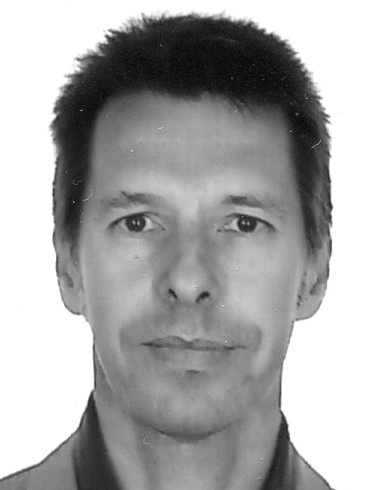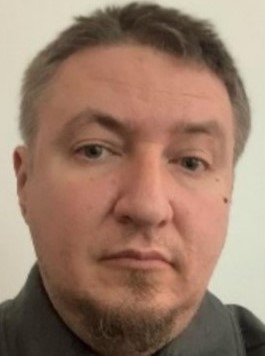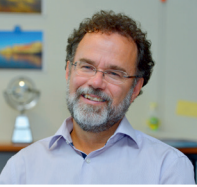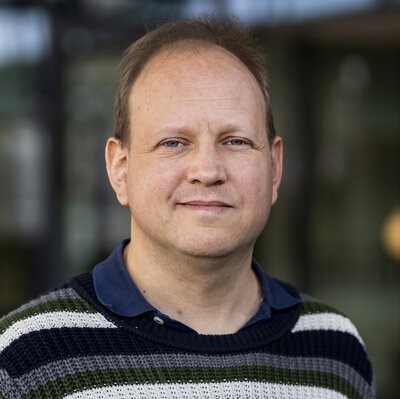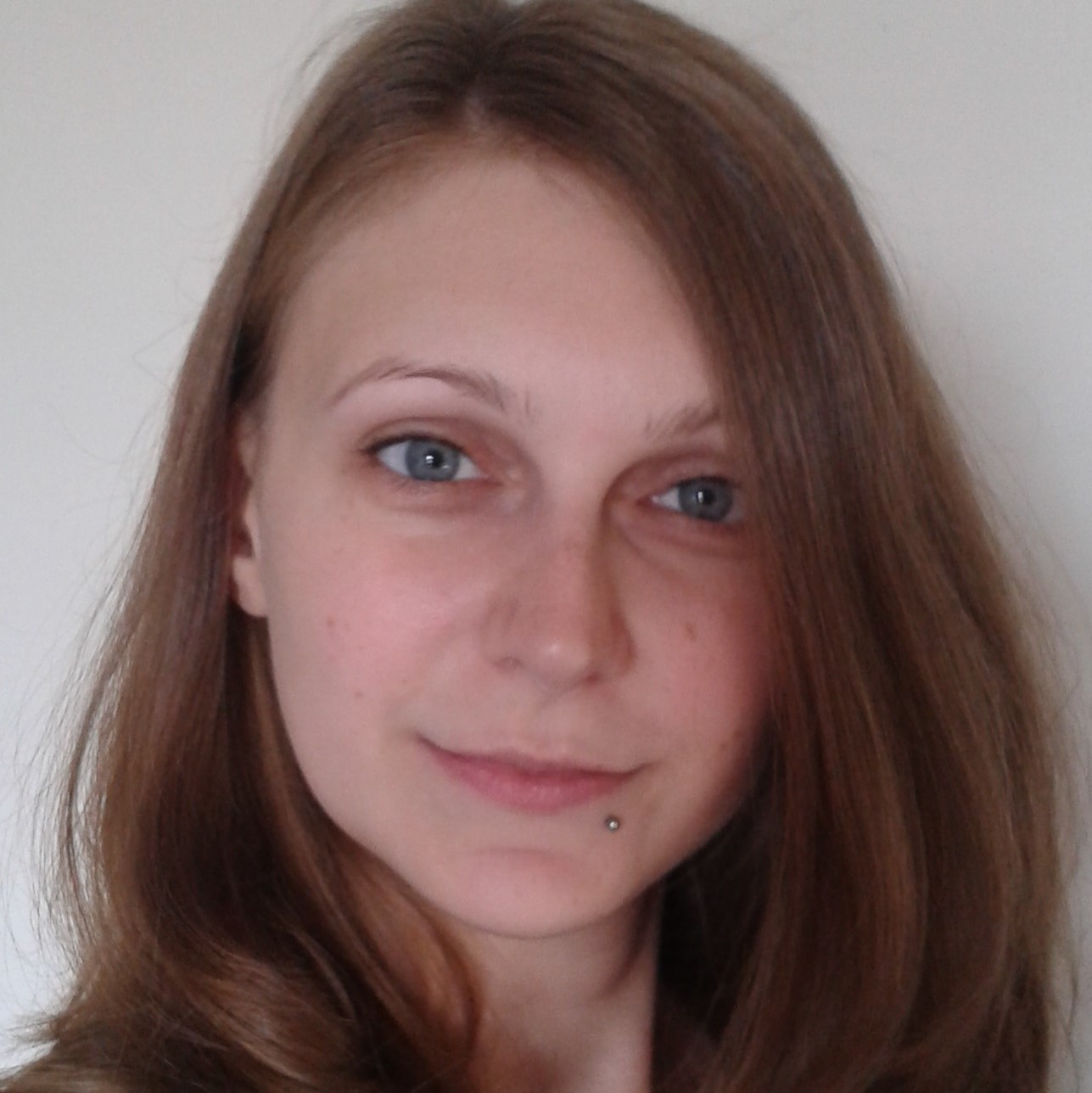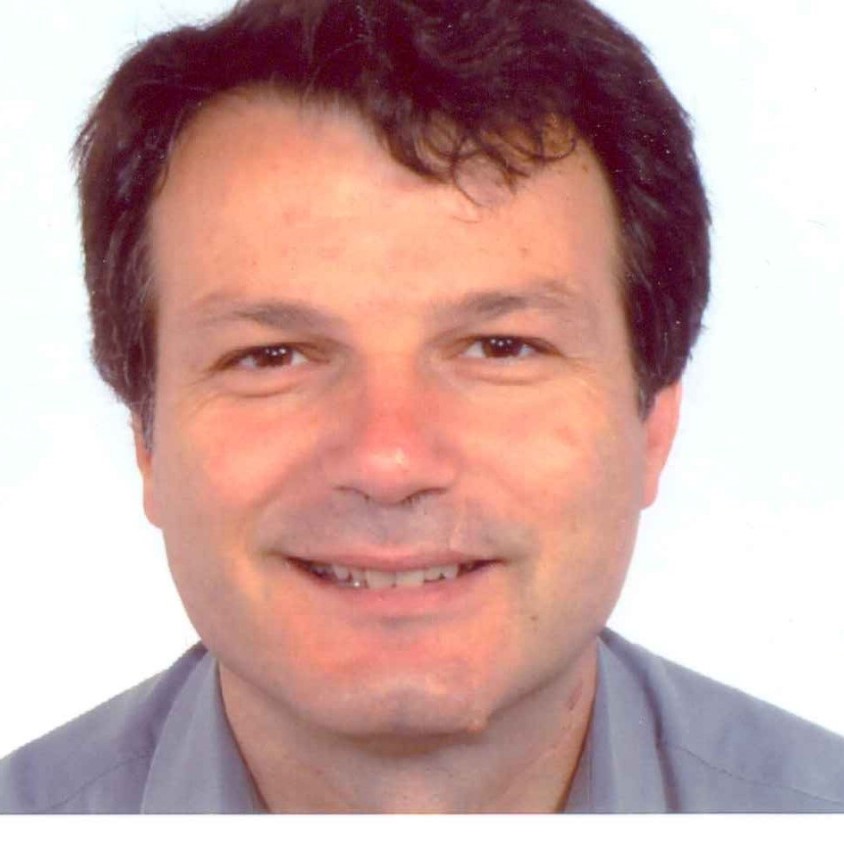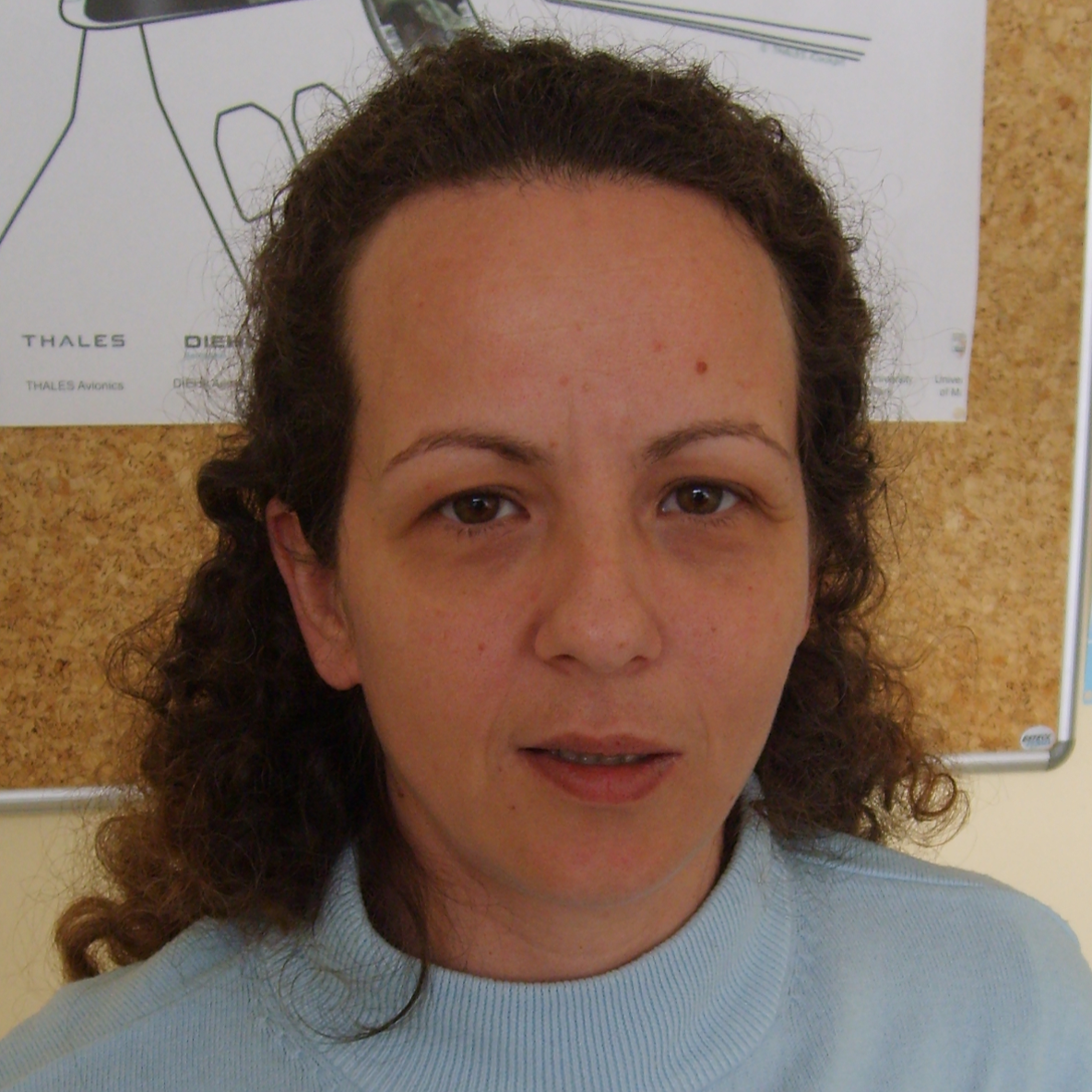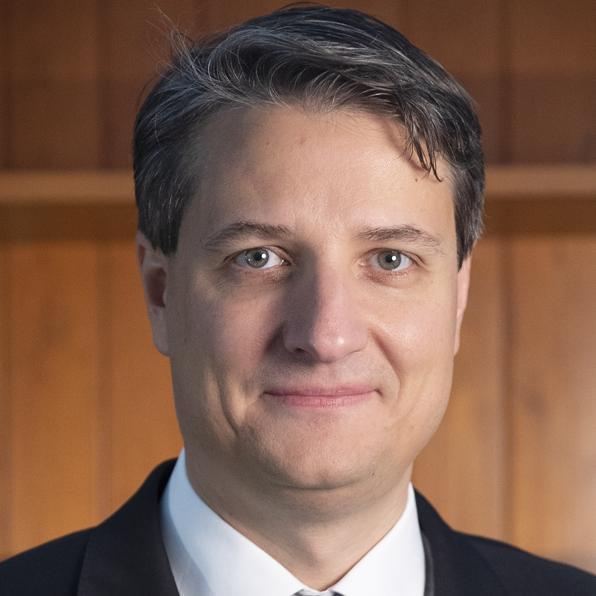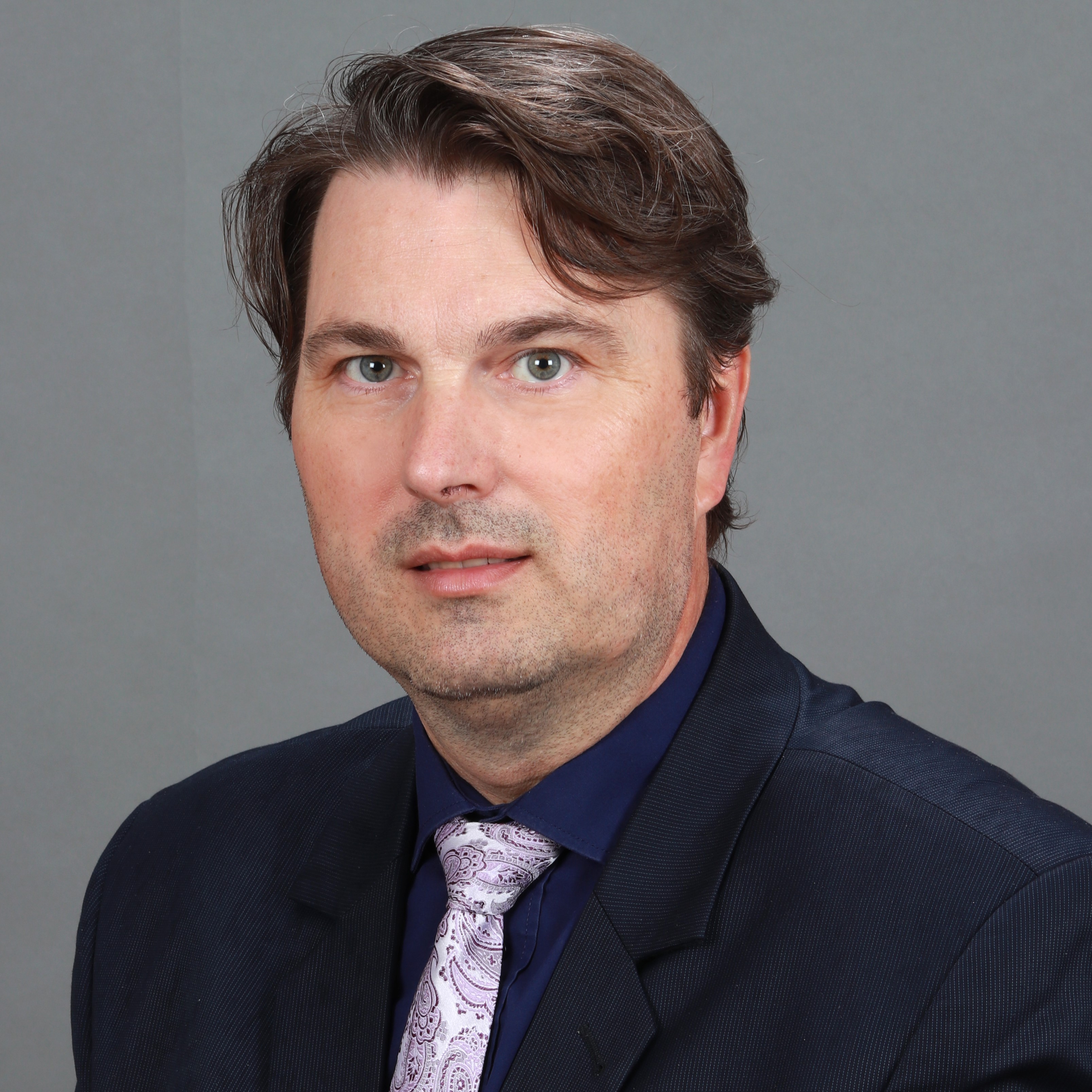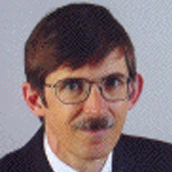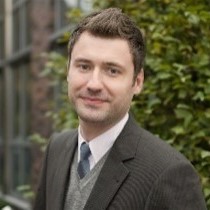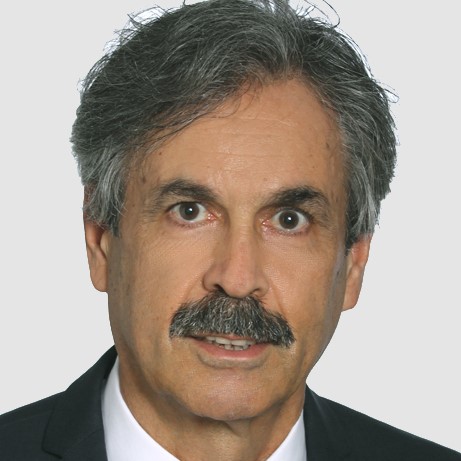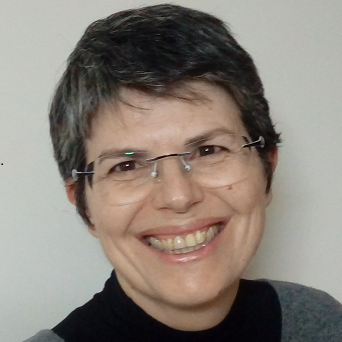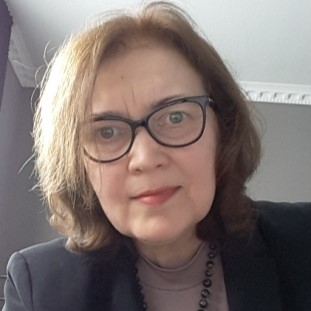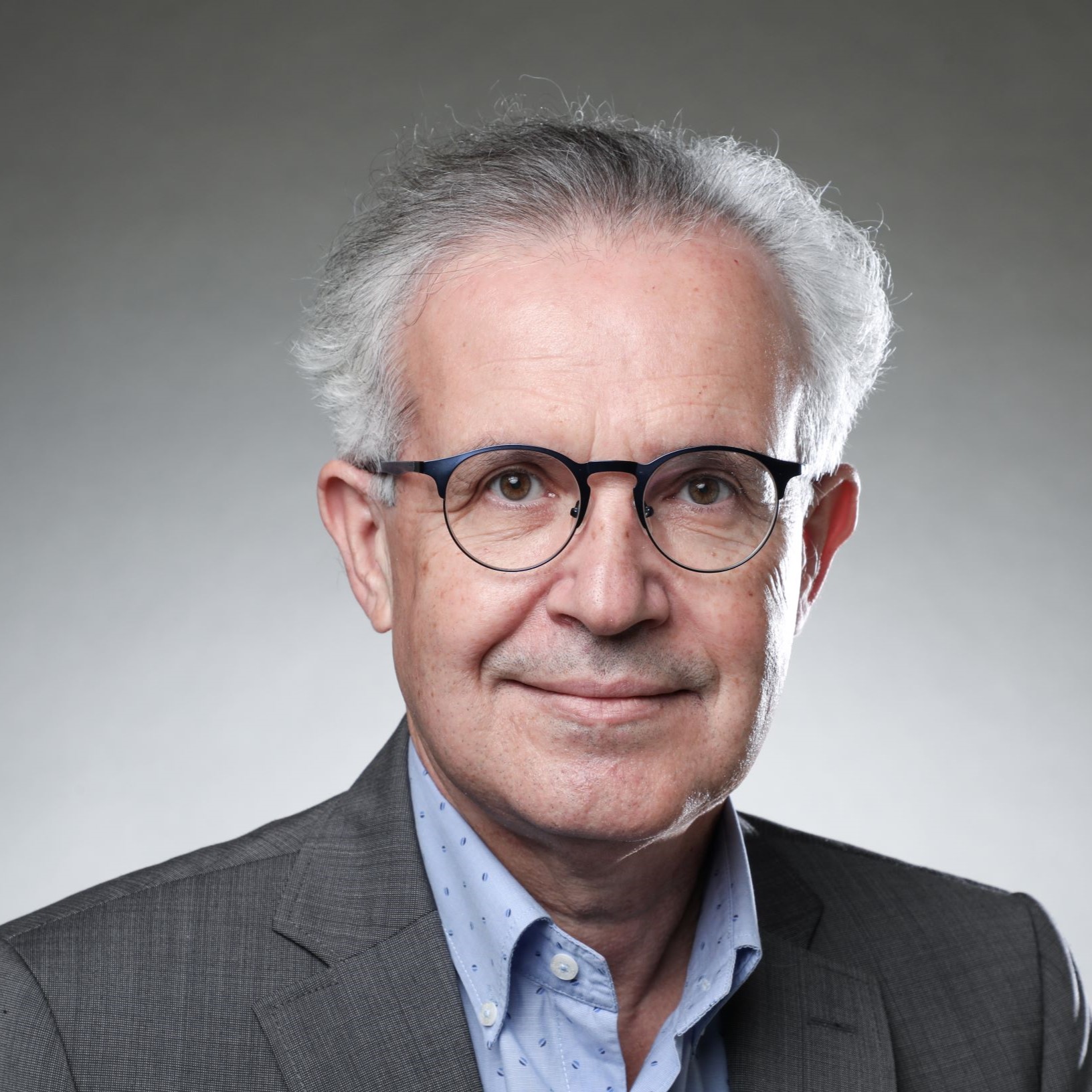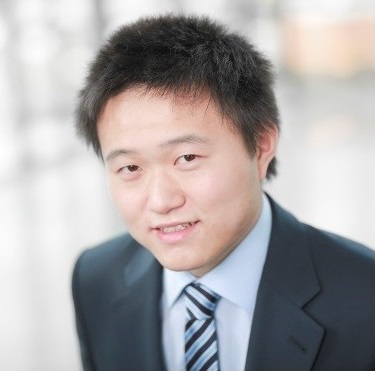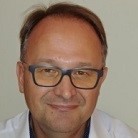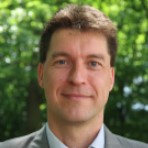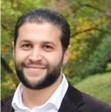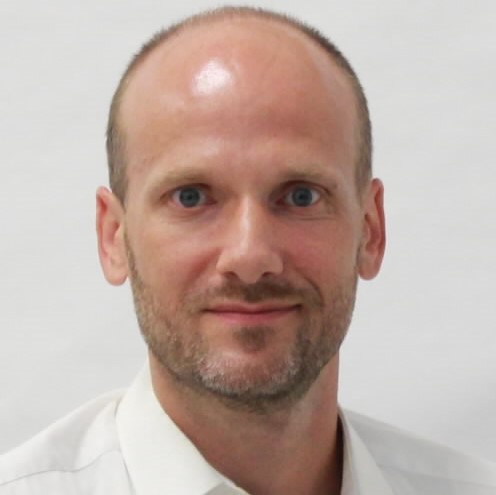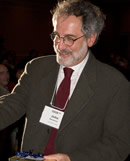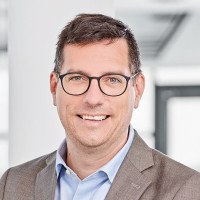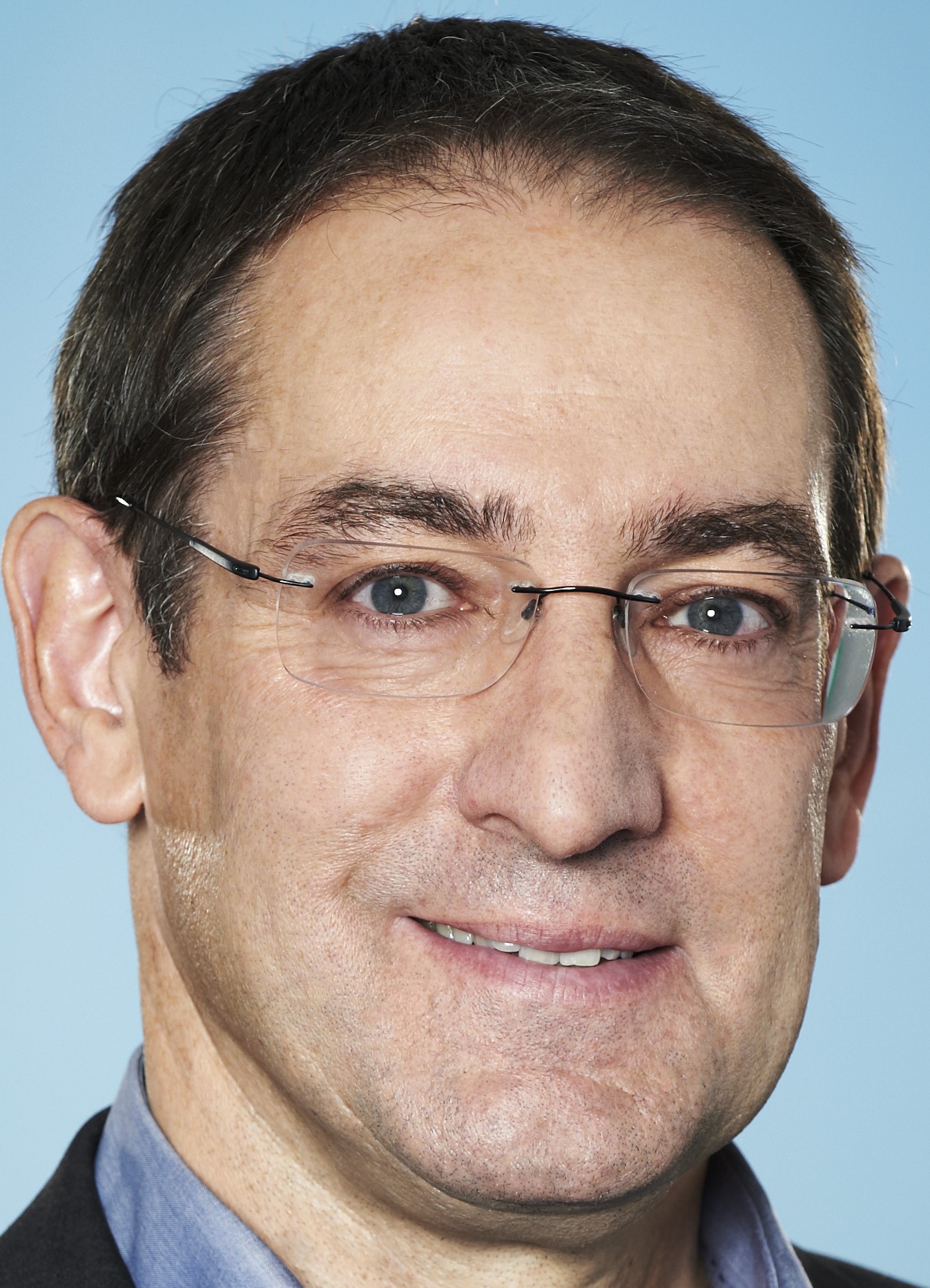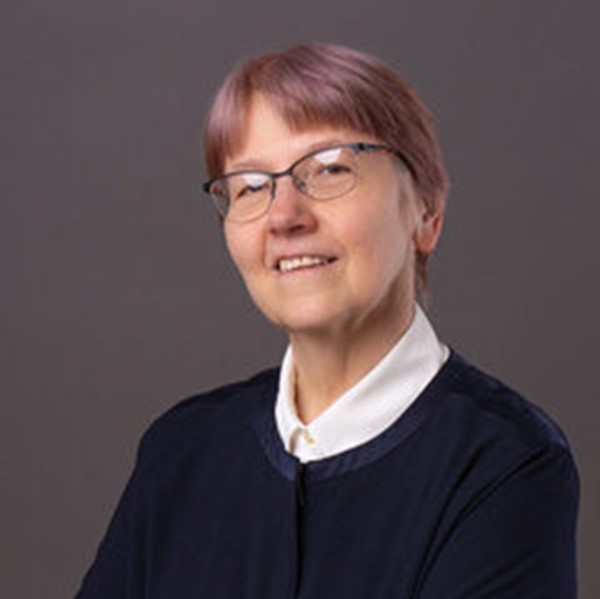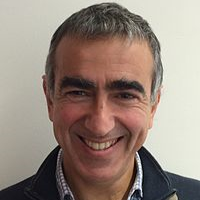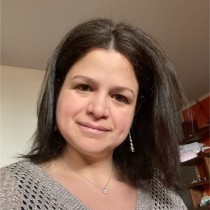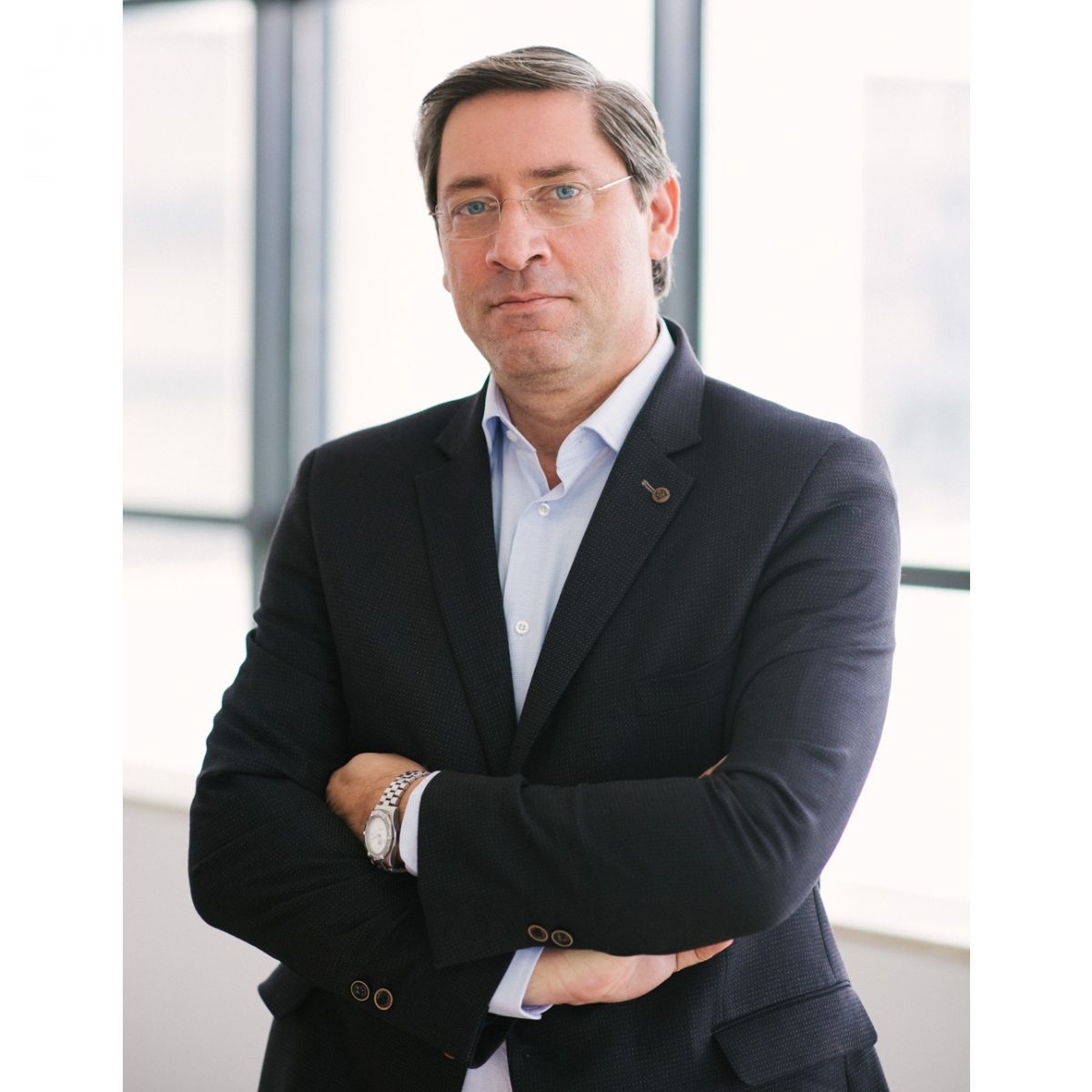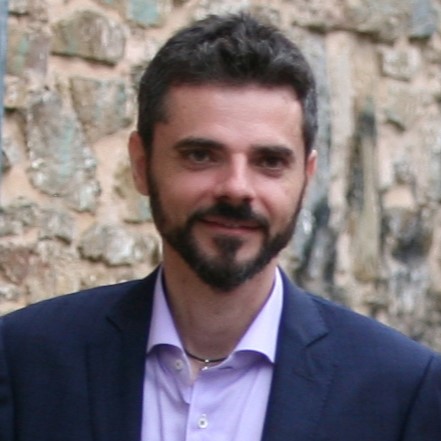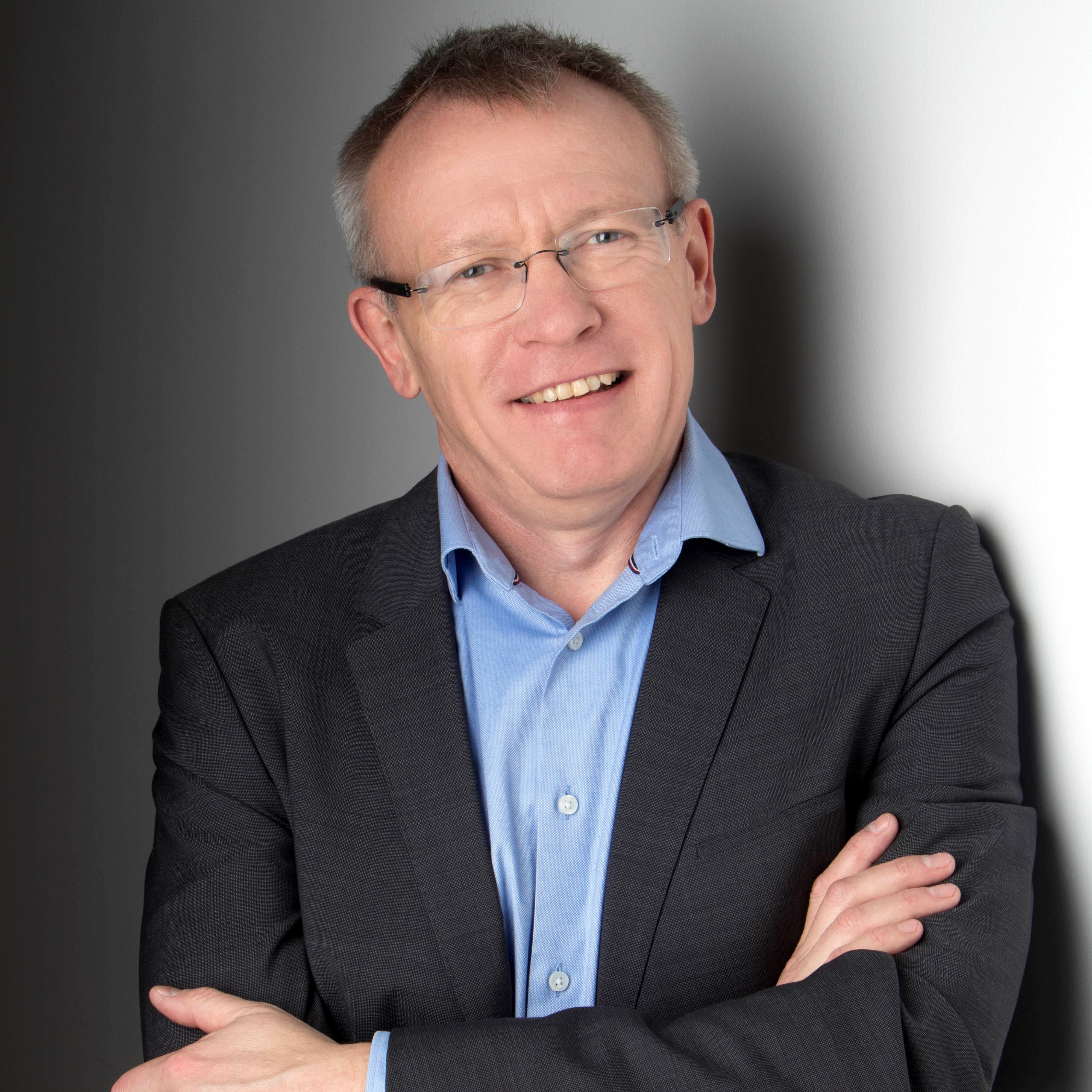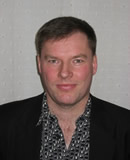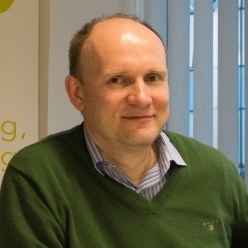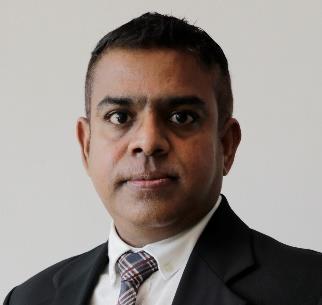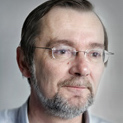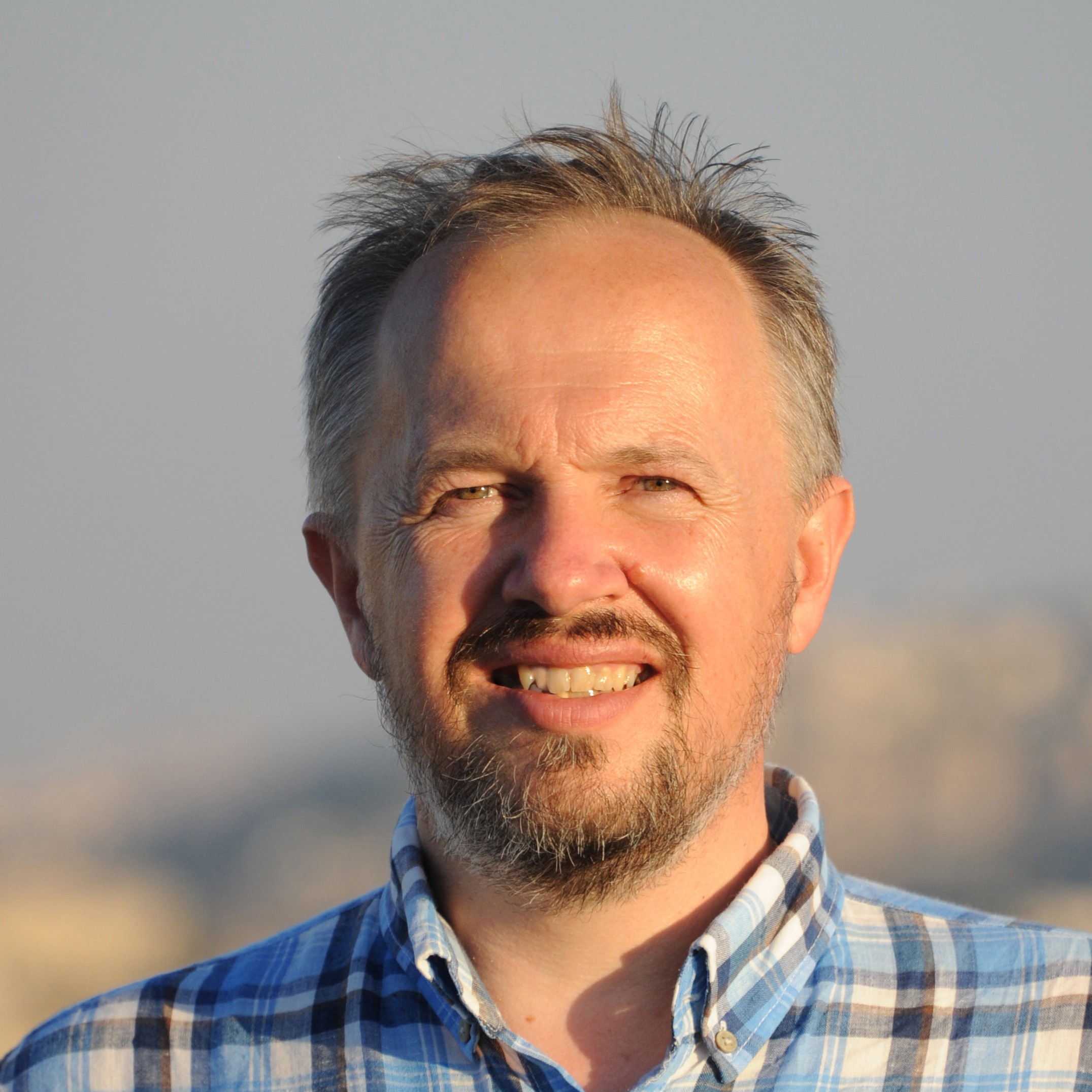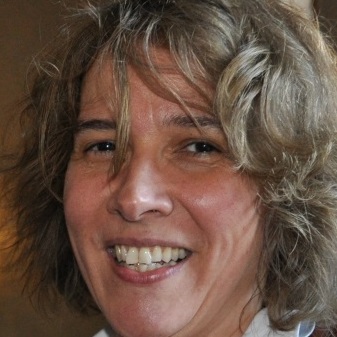Abstracts
Have a look at the lecture abstracts of this year's edition and explore the profiles of the presenters!
All times are UTC+2 (Vienna, CEST - Central European Summertime).
The current industrial transition towards Factories of the Future (FoF) implies strong transformation of enterprise Business Models within the manufacturing sector. Product Service Systems are a key component of this transition, and contribute to renovate both the underlying enterprise models and the needs of enterprise engineering tools. The objective of the lecture is to articulate the overall needs of transition towards FoF with the requirements for innovative conceptual modelling approaches and new enterprise engineering methods and tools. The lecture will first give a synthetic insight on PSS within the context of FoF, to make possible for the audience to understand the key concepts of PSS and key industrial needs for developing innovative enterprise modelling and engineering solutions. The second part of the lecture articulate two dimensions of Enterprise engineering: an advanced modelling method dedicated to support PSS design and engineering (based on a PSS-oriented meta-model) and a decision-making approach for PSS economic-model balancing.
Lecture at NEMO2024
Date/Time: Friday, July 19, 2024 at 09:00 UTC+2/CEST
Knowledge Graphs have been primarily investigated as engineered artifacts by themselves – from their underlying formalisms (e.g. description logics), enabling technologies (e.g. RDF, LPG) to their knowledge management and semantic enrichment capabilities.
We aim to shift focus from what Knowledge Graphs are or how they can be built towards how they can be relevant to Information Systems engineering. We also aim to investigate their place in the Conceptual Modeling paradigm, specifically how Knowledge Graphs can enable new flavors of model-driven engineering or low-code engineering. Research advances on the interplay between Knowledge Graphs and Machine Learning or Natural Language Processing for systems engineering purposes are also discussed.
Lecture at NEMO2024
Date/Time: Monday, July 22, 2024 at 14:00 UTC+2/CEST
The Safeguards Department of the International Atomic Energy Agency (IAEA) ensures the peaceful use of nuclear material and activities in accordance with legal agreements between the IAEA and member states. In order to verify compliance with the agreements, Safeguards staff verify the consistency between member states declarations with observations in the field (often at nuclear facilities) along with observations from other Safeguards relevant information collected in headquarters. The Department has developed and continues to develop a suite of custom designed software to enable the department’s work. The digitalization of work processes is key to increase the efficiency and effectiveness of the workforce. Some important considerations in this regard are: It is vital to know your users, the business of your users, and your user’ capabilities. Knowledge gaps in any of these areas increases risks, and increases the likelihood of project failure; well designed digital workflows can bring a range of benefits which may not be immediately evident. While digitizing a workflow can help stakeholders understand what needs to be done now, over time the output could be used to identify patterns of past behavior, and can form the basis of future predictions; training and assessments can be used to increase users’ knowledge and engagement with new systems. When deploying a new system, engaging with users and providing training is critical. Post-training assessments can be used to help users identify and retain key points from the training.
Lecture at NEMO2024
Date/Time: Monday, July 15, 2024 at 09:00 UTC+2/CEST
Value modeling has been a staple of the enterprise modeling discipline for the design of value networks. e3value is historically a prominent technique for value modeling. For a given scenario it focuses on modeling the involved actors and what they exchange of value with each other. In this talk, I will introduce e3value, and reflect upon lessons learned from its application to domains as diverse as the electricity sector and the healthcare sector. Lessons learned include situational adaptation of e3value, as well as the need to embed the language is a larger suite of modeling languages such as ArchiMate to increase the potential of analyses that involve cross-cutting different organizational perspectives, which characterizes enterprise modeling.
Lecture at NEMO2024
Date/Time: Wednesday, July 17, 2024 at 15:00 UTC+2/CEST
Metamodeling concepts comprise not only the selection of appropriate methods but also the syntactic and semantic specification of modeling techniques. Moreover, these techniques need to be accompanied by a proper notation as well as mechanisms and algorithms that enable the processing of created models. Lastly, the actual way of applying a certain modeling technique by means of a modeling procedure needs to be specified.
Lecture at NEMO2024
Date/Time: Monday, July 15, 2024 at 14:00 UTC+2/CEST
SAPnet is an ADOxx-based modelling tool that includes the ontology toolkit for stochastic Petri net (SPN) modeling enriched with the tools that enable the security evaluation of the model. SAPnet provides (a) a modeler-friendly interface for the composition and the updating of the security vulnerabilities list that affect the model, and (b) fast and accurate results regarding the security metric of the model, at any point of the designing phase. The SAPnet is presented and used for the evaluation of the security of an Internet of Things (IoT)-based transport service in real-life scenarios.
Lecture at NEMO2024
Date/Time: Monday, July 15, 2024 at 11:30 UTC+2/CEST
Augmented Reality is a technology that overlays the real world with virtual objects such as images, three-dimensional representations, or videos. When combined with conceptual modeling, the knowledge expressed in the models can be anchored in the real, physical world in a variety of ways. We call this new direction ‘Spatial Conceptual Modeling’, as opposed to traditional, two-dimensional modeling that does not consider the spatial dimension. To illustrate the properties of spatial conceptual modeling, this talk presents the Augmented Reality Workflow Modeling Language (ARWML). This modeling language enables the definition and execution of complex augmented reality scenarios without the need for programming. The language has been implemented on the ADOxx platform as well as on a new metamodeling platform for natively supporting spatial conceptual modeling.
Lecture at NEMO2024
Date/Time: Friday, July 19, 2024 at 11:30 UTC+2/CEST
Innovation is the only way the EU can maintain a strong, sustainable and competitive economy. However, at present, there are large imbalances between the degrees of innovation of EU countries. One solution to mitigate this drawback consists of the development of collaborative networks that replicate the best models of innovation from advanced countries and adapt them to underdeveloped countries in Europe. Such a collaboration exists between Lucian Blaga University of Sibiu, OMiLAB community, and local industrial partners. This lecture emphasizes both the importance of innovation, challenges involved, especially in modest innovator countries of EU, and different perspectives of a Digital Innovator, starting from environment, target domains and specific activities, human resources, and education curricula. Finally, there are presented some practical examples from ULBS, pilot projects targeting industry or agriculture cases aiming to boost the regional innovation.
Lecture at NEMO2024
Date/Time: Tuesday, July 23, 2024 at 14:00 UTC+2/CEST
Conceptual models are of pivotal relevance for the design, maintenance and use of software systems. However, the design of modeling languages and corresponding tools suffers from serious limitations. They concern the lack of expressiveness, the lack of abstraction and, as a consequence, limited reuse and adaptability, as well as dissatisfactory integrity. Over the last twenty years research on multi-level modeling has produced various approaches to overcome these limitations. Different from traditional language architectures such as the MOF, multi-level architectures enable an arbitrary number of classification levels. This way, they allow for the specification of DSMLs with more general DSMLs and enable relaxing the notorious power-generality trade-off. Furthermore, frustrating problems caused by the lack of expressiveness MOF-like language architectures suffer from can be avoided.
This talk will start with explaining the serious shortcomings of prevalent language architectures. Subsequently, essential features of multi-level language architectures are presented. Finally, the talk will give an introduction to a specific multi-level language, the FMMLx, and a corresponding language engineering, modeling and execution environment, the XModelerML. Among other things, the XModelerML enables the common representation of models and tools (because it features a multi-level programming languages). Thus, it does not only allow to overcome the notorious synchronization problem, but also to develop new architectures of enterprise application systems that provide for unprecedented levels of reuse, adaptability and user empowerment. The presentation of core concepts is supplemented with a short tool demo.
Lecture at NEMO2024
Date/Time: Tuesday, July 23, 2024 at 10:00 UTC+2/CEST
Requirements Engineering (RE) has been applied with remarkable success for specifying the requirements for systems or products. However, as RE has traditionally been performed as a heavy-weight, upfront process for creating a comprehensive specification, it has been criticized or even declared obsolete in recent years, particularly by the proponents of agile development. In this talk, I will shed light on the role of requirements in today’s digital world, discuss how this relates to enterprise modeling, and show how modern RE can contribute to shaping, evolving and sustaining digital systems and products.
Lecture at NEMO2024
Date/Time: Tuesday, July 16, 2024 at 14:00 UTC+2/CEST
Many ecosystems such as Facebook, Google, Amazon, Uber, and many more are not considered as fair. This is amongst other demonstrated by the European Commission, who fines the dominant parties of these ecosystems regularly. We explain, in a model-based way why such ecosystems are unfair, and how the model can tell this. We also give some guidelines how to design fair ecosystems and the required decentralized information technology to accomplish these. We also give some examples of ecosystems that are from a structural point fairer than the well-known platform-oriented ecosystems.
Lecture at NEMO2024
Date/Time: Wednesday, July 17, 2024 at 16:30 UTC+2/CEST
In a society with limited resources and various environmental constraints, it is essential to aim for a circular economy. In this lecture, we will discuss conceptual modeling for sustaining the creation of intangible asset values such as services for various stakeholders in such a social environment. As a concrete example, we will explain value co-creation among stakeholders using high contextual information for Japanese creative services. The study of such conceptual modeling will provide useful suggestions, especially in a mature society where both production and demand are becoming scarce.
Lecture at NEMO2024
Date/Time: Thursday, July 18, 2024 at 15:00 UTC+2/CEST
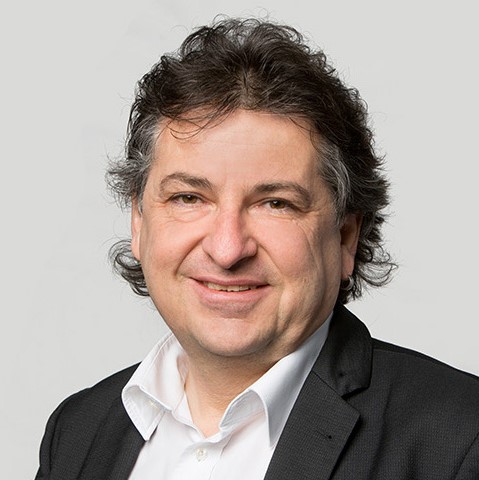
University of Applied Sciences and Arts Northwestern Switzerland FHNW, Switzerland
The continuous alignment of business and IT in a rapidly changing environment is a grand challenge for today’s enterprises. Decision-makers use models to understand and analyze a situation, to compare alternatives, and to find solutions. While humans prefer graphical or textual models, semantic annotation makes the knowledge in models machine-interpretable. This presentation describes a meta-modelling approach, which combines human-interpretable graphical enterprise architecture models with machine-interpretable enterprise ontologies. A metamodel which is represented as a formal ontology determines the semantics of the metamodel. Every time a new modelling element is created during modelling, an instance for the corresponding class is created in the ontology. It can be enhanced with an ontology representing the domain of discourse. Thus, models for humans and machines are based on the same internal representation. Ontology-based modelling also supports model-driven architecture, which is based on a step-wise transformation of computation-independent to platform-specific models and finally converted into code.
Lecture at NEMO2024
Date/Time: Thursday, July 18, 2024 at 10:00 UTC+2/CEST
An important climate target recently established by the EU is a 55% decrease in greenhouse gas emissions (by 2030), with the goal of achieving complete climate neutrality by 2050. Considering this, companies need to critically reflect upon their business processes and aim to reduce greenhouse gas emissions as well as energy and resource utilization. At that point, process-oriented quality management methods like Six Sigma or Lean Management can make substantial contributions in reorganizing a company’s processes to meet environmental goals and come to resource-saving operations. The issue is that a standardized definition of “green quality” along with corresponding quality dimensions has not yet established. Accordingly, companies search for ways to adapt, modify, or enhance existing quality management methods to pursue different sustainability goals. In this light, the lecture proposes an approach to construct enterprise-adapted and easy-to-use quality management approaches to pursue environmental sustainability goals on a process level. Thereby, conceptual model types are used to document, process and communicate the results generated in projects.
Lecture at NEMO2024
Date/Time: Wednesday, July 17, 2024 at 09:00 UTC+2/CEST
We use abstraction to reduce complexity in a domain for a specific purpose. This lecture summarizes the insights from a decade of NEMO Summer School and more than 33 years of lectures and research.
Lecture at NEMO2024
Date/Time: Monday, July 15, 2024 at 15:00 UTC+2/CEST
The lecture concerns an approach to the application of conceptual modelling known as the Capability Oriented Requirements Engineering (CORE) approach. The conceptual modelling framework applied in CORE employs a set of complimentary and intertwined modelling paradigms based on enterprise capabilities, goals, actors, and information objects. The lecture will define the foundational concepts of CORE as well as the way of working from capturing textual descriptions from stakeholders, progressing to formally defining models of early requirements, based on the CORE meta-model, and in a stepwise refinement define functional and non-functional requirements of desired systems. The theory will be supplemented by examples from a real application of CORE on a Cyber Physical Production System.
Lecture at NEMO2024
Date/Time: Tuesday, July 16, 2024 at 15:00 UTC+2/CEST
In an era of global economy and frequent changes caused by digital transformation, innovation, and other factors, the systems development faces the need for continuous realignment with new enterprise goals, business processes, and technologies. To achieve a successful realignment, availability of knowledge about the enterprise and its environment (including new technologies) becomes an enabler of successful definition of requirements and implementation of changes at the business and technology level. Enterprise models are an important source of knowledge that can be represented using commonly available enterprise architecture notations. Sticking to common notations helps not only to represent the knowledge about the enterprise but also to show a generic knowledge about new technologies, for instance, low-code/no-code development; and such representation, in turn, helps in the adoption of these technologies.
Lecture at NEMO2024
Date/Time: Tuesday, July 23, 2024 at 15:00 UTC+2/CEST
Business processes in a broad range of industries along the value-chain and product life-cycle suffer from significant challenges pertaining to information fragmentation. These challenges include inconsistent information presentation, business units and datasets, heavy and chaotic manual information exchange, unknown data validity and tolerance ranges, loss of information provenance, data incompleteness, etc. To address these challenges, we need model-based standardised product data exchange between different business units along the value-chain and product life-cycle. Existing modelling languages such as OWL are expressive, but not sufficiently usable for non-semantic experts, while typically these experts (e.g., engineers) possess the essential knowledge for creating the data models. To this end, we develop an approach named as Information Modelling Framework (IMF) that aims at user-oriented and user-friendly information modelling for engineers, facilitating and allowing for a reliable and efficient use of AI and Digital Twin technologies in industrial applications. This talk presents our research of the IMF approach and exemplify its usage with real business cases towards digitalisation of industrial processes.
Lecture at NEMO2024
Date/Time: Thursday, July 18, 2024 at 09:00 UTC+2/CEST
In general, process algebra can be the most suitable formal method to specify IoT systems due to the equivalent notion of processes as things. However there are some limitations to predict smart IoT systems with the properties of distribution, mobility and real-time. For example, Timed pi-Calculus has capability of specifying time property, but is lack of direct specifying both execution time of action and mobility of process at the same time. And d-Calculus has capability of specifying mobility of process itself, but is lack of specifying various time properties of both action and process, such as, ready time, timeout, execution time, deadline, as well as priority and repetition. In order to overcome the limitations, this lecture presents a process algebra, called, dTp-Calculus, extended from d-Calculus, by providing with capability of specifying probabilistic transitions with the set of time properties, as well as priority and repetition. Further the method is implemented as a tool, called SAVE, on the ADOxx meta-modeling platform. It can be considered one of the most practical and innovative approaches to model probabilistic behavior of smart IoT systems.
Lecture at NEMO2024
Date/Time: Tuesday, July 23, 2024 at 09:00 UTC+2/CEST
Research has often been regarded as a “wicked problem”, an activity of informed curiosity when researchers state what they are doing when they don’t really know what they are doing. It is a process which is guided by a particular methodology the choice of which is based on the contextual setting of the research topic (the challenges) as well as the motivation for a solution (the deliverables). In this lecture, we will examine issues involved in research with particular emphasis on research in the field of Enterprise Information Systems (EIS). We will examine the issues underpinning the EIS domain, the emergence of research needs from digitisation, to interpretation and more recently to transformation of enterprises. Given this context, we will explore different research methodologies that may be deployed, such as those of Design Science Research, Action Research, Case Study, Survey Design, Mixed Methods and Qualitative Methods, each one of which is suited to different motivational characteristics of the underlying research goals. We will also explore the social dimension of research, including issues encountered by researchers in settings involving communities within their specific research environment as well as other related communities (e.g. the NEMO Summer School) and the broader EIS community. Branching out from a close research environment by exploiting gained experiences, towards collaborative initiatives, competing for research funding and helping the next generation of researchers will also be addressed in this lecture.
Lecture at NEMO2024
Date/Time: Thursday, July 25, 2024 at 14:00 UTC+2/CEST
Nowadays, modern business includes acquisition and storing enormous data volumes, larger than ever before. Such data represent a significant value that an organization or a society can utilize to reach created goals and provide sustainable development. Unfortunately, a daily practice still intensively points out to the problem of a serious gap between the identified needs for knowledge, on one hand, and inability of the disciplines of Computer Science, Software Engineering, and Artificial Intelligence (CS & SE & AI, for short), combined with the modern software technologies, to address such needs in an effective way, on the other hand. One of the important causes of such phenomenon is in a lack of strongly educated and interdisciplinary oriented experts showing an appropriate level of knowledge both in CS & SE & AI, as well as in the disciplines of Management and Economics, for a specific problem domain. In this presentation, we will address issues on how to come to more flexible and interdisciplinary oriented study models capable of producing various forms of digital managers, as a new profile of experts, ready to cope with digital economy and digital transformation in a modern society. Massive deployment of such experts is a way to significantly raise the level of organization maturity regarding capabilities for: information management, quality management, business processes, and big data analytics.
Lecture at NEMO2024
Date/Time: Tuesday, July 16, 2024 at 16:30 UTC+2/CEST
In this lecture, we will give an overview of a specific conceptual modeling technique, the Sensitivity Model according to Vester. We will study this technique by applying it to model the ecosystem of the small city of Wetzlar with respect to traffic. Wetzlar is undergoing the transformation towards a smart city. As part of its transformation, a number of data-driven traffic management applications have been proposed, and they need to be selected for prototypical development, implementation, and testing. We will show how a Sensitivity Model can be developed by involving relevant stakeholders. And we will demonstrate how the Model can be employed to analyze the key drivers and mechanisms underlying city traffic. We will further discuss how the Model can be used to assess the effectiveness of certain applications on the conceptual stage and, thus, facilitate their selection. In addition, we will share some insights from the real-life project from which the contents of this lecture have been derived.
Lecture at NEMO2024
Date/Time: Monday, July 22, 2024 at 16:30 UTC+2/CEST
Dealing with modeling, i.e., defining modeling languages and using them consistently is not everyone’s cup of tea. While in engineering, especially for life-critical systems, modeling is a matter of course, in the practice of the software business one often encounters the opinion that the effort for systematic modeling does not pay off. Often also, the object under development is estimated so complex that it cannot be described with a modeling language but must be programmed right away. This is of course a contradiction in terms. For, programs are (representations of) models of processes, that are to be executed by a computer. In short: programming is modeling! Accordingly, requirements engineering also consists to a large extent of modeling. For practitioners, it would be desirable to be able to use requirements models as building templates, i.e., prescriptive models (specifications) that evolve in parallel with the system and become descriptive models of the final product. It is the task of Infomatics to provide suitable methods for this! Consequently, Informatics has for long systematized the field of modeling, for example by introducing model hierarchies, by ontological foundations, by developing universal modeling languages such as UML, or by specifying domain-specific modeling methods (DSSMs) for areas of application where universal approaches fail. For the design and implementation of reliable and resilient Enterprise Digital Twins and Digital Ecosystems, Conceptual Modeling is the key method. In this talk we aim at a better understanding of what this method is about. We will address the “anatomy” of conceptual models and show how they can be characterized by a signature. We combine this with a transparent explanation of the nature of conceptual models as the link between the dimension of language representation and the dimension of fixing a unique model semantics: Figuratively this leads to the triptych of conceptual modeling. Building on this, we show how digital ecosystems can be designed and developed in a rigorous model-centered approach. This is illustrated by the results of projects we have carried out in the areas of assistance systems and the development of mechatronic systems.
Lecture at NEMO2024
Date/Time: Monday, July 15, 2024 at 10:00 UTC+2/CEST
Agile manufacturing has been around for a while as a means to address changing customer requirements and turbulent markets. Among the critical challenges ahead of decision makers in the business sector, is how to deploy agility concepts at operational level. This lecture introduces agility concept with a focus on manufacturing domain and outlines solutions approaches to enable agile manufacturing. The lecture also highlights the role of business process management in fostering the deployment of agile manufacturing.
Lecture at NEMO2024
Date/Time: Tuesday, July 16, 2024 at 09:00 UTC+2/CEST
Hilti wants to make construction better and promises its customer’s that Hilti is the best partner for productivity, security and sustainability. To do so, Hilti offers not only physical products and related services but also a vast variety of software products. To live up to this customer promise for software products, it is not only important to build “Customer Centric Software Products“, but also to nurture the relationship with customers, to listen and learn from them. To fulfill this promise, Hilti established a software support organization that is currently undergoing a transformation from a “classical software support team” to a “customer advocates team”. The focus of this transformation lies not only on the services that are offered by the customer advocates team, but more importantly it triggers a change in the traditional mindset and skill set of software support engineers. In this slot we will discuss this transformation and derive 10 things customer advocates have to be good at, based also on the Digital Design Thinking approach and workshops conducted in our OMiLAB@Hilti node.
Lecture at NEMO2024
Date/Time: Wednesday, July 24, 2024 at 14:00 UTC+2/CEST
TBD
Lecture at NEMO2024
Date/Time: Thursday, July 25, 2024 at 15:00 UTC+2/CEST
Hilti is providing products, system solutions and software-based services that contribute to make work on construction sites simpler, faster and safer. While Hilti is proud of its leading construction tools and consumables, it has started to engage itself in building digital products and solutions for its customers. In our presentation at NEMO Summer School, we describe how modelling approaches help us in building software solutions that satisfy the needs of our customers.
Relevant questions herein are:
(1) How do we reduce the variations and hence complexity of provided software features so that we can deliver them fast and in a reliable manner without compromising customer needs?
(2) How can we consider future scaling and performance needs in our software architecture?
(3) How can we achieve an architecture model that allows for identifying potential issues (or improvement needs) before they impair our software solutions?
We work on trying to answer these and other questions by (also) applying modelling approaches in a pin-pointed and efficient way.
Lecture at NEMO2024
Date/Time: Wednesday, July 24, 2024 at 15:00 UTC+2/CEST
Business processes in the internet age are typically not restricted to single organizations but cross organizational borders to customers, suppliers and other organizations. The design of these business processes is a complex collaborative task, which requires special methodological support.
This lecture introduces Horus, which includes a comprehensive set of modelling methods and languages to support the whole life cycle of business processes. Horus is based on high-level Petri Nets for procedure modelling and provides additional modelling support for objects, resources, organizational structures, business goals and business rules. Simulation based concepts are provided to evaluate process models.
Besides describing the basic concepts of Horus, the lecture focuses on ongoing research work:
- Artificial intelligence currently has a strong influence on process modelling. On the one hand decisions based on machine learning approaches have to be included in process models. A pattern based approach is proposed to model different decision scenarios. On the other hand, generative AI tools can be used to support modelers in their modelling activities. Process models can be (at least partially) automatically derived from textual descriptions.
- Teaching modelling languages is a challenge for universities and other teaching organisations. A software tool is described for (semi-)automatically evaluating process models with respect to syntactic, semantic, and pragmatic correctness. The tool can be used to support teaching staff in evaluating student models from examinations. The tool can also be used to support students in improving their modelling capabilities by providing hints to errors in their models.
- Finally, non-standard processes in the Internet of Things and in the context of smart mobility are considered. Processes in this area are typically less structured than traditional business processes. Processes interact with their environment via sensors and actors and collect data for (partially) autonomous decisions. Micro processes, which consist of only few activities, are flexibly combined to each other and have to be connected to other running business processes in the environment.
Lecture at NEMO2024
Date/Time: Wednesday, July 24, 2024 at 10:00 UTC+2/CEST
Developing complex software may be a challenge for students or those with less technical expertise in software design due to the large number of modeling notation, methods, tools, and technologies. The new technology solutions, e.g., Internet of Things, digital twins, or intelligent objects, i.e., robots, sensors, drones, etc. can also cause difficulties in their implementation process, because of their low understandability. The need to recognize the users’ preferences and attitudes was the basic premise to develop the technology acceptance models.
That models and theories focus on studying factors affecting acceptance, attitudes, or decision to use. This lecture aims to present and discuss the applicability of statistical methods for evaluation of technology acceptance. The lecturer will explain the acceptance frameworks, e.g., the Revised Technology Acceptance Model (RTAM), Technology Readiness Index (TRI), or the Technology-Organization-Environment (TOE) model. These frameworks are needed for specification of the conceptual models, which are sets of interrelated latent variables. Next, the Structural Equation Modeling (SEM) will be explained and discussed. Further, some statistical model estimation results will be presented. Finally, the pros and cons of the SEM application will be considered.
Lecture at NEMO2024
Date/Time: Monday, July 22, 2024 at 10:00 UTC+2/CEST
Including business information into model-driven development methods has been widely explored, mainly through business processes and goal models, and model-to-model transformations from requirements to code. As software intensive organizations require to scale their agility through modularized architectures such as microservices, strategic-level information acquires paramount importance to identify business-aligned modules. However, given the broad domain of strategy, designing strategy modeling methods requires an incremental, iterative process, and the appropriate tool support to enable the exploration of feasible and useful models. In this lecture, we present the process of using ADOxx as modeling environment to enable the design of LiteStrat, an organizational modeling method focused on business strategy and organizational structure, and its integration with business process models through Stra2Bis, a set of model-to-model transformation guidelines. Our approach leverages Situational Method Engineering to select and assemble method parts from existing business strategy conceptualizations, and ADOxx strengths for rapid prototyping of modeling tools. Throughout a Design Science cycle, we illustrate how an ADOxx-powered tool supports problem investigation, design, and validation of novel artifacts for model-driven engineering.
Lecture at NEMO2024
Date/Time: Thursday, July 18, 2024 at 14:00 UTC+2/CEST
Despite their recent introduction and consolidation in the industrial practice, Product Service System business models are subjected to a further revision in order to fully exploit the opportunities and challenges provided by the Industry 4.0 technological paradigm. Companies need to identify and define new business models integrating PSS with digital technologies and, as a result, revise their decision-making processes. The design and development of a Product–Service System (PSS) raises new issues since the service component introduces further requirements than traditional product engineering. Compared to traditional and smart products, services are generally under-designed and inefficiently developed. Approaches such as New Service Development, Service Design and Service Engineering have emerged during the last decades to support the design and development of service either as a system itself or as a constituting element of a PSS. In particular, Service Engineering investigates service design and development with a systematic perspective and with a seamless integration of product and service contents. Purpose of the lecture is to provide a holistic conceptualisation and an up-to-date analysis of the current state of the art on the evolution of the concept of Product Service system and Service Engineering models with a specific focus on their adoption in the PSS context. A critical analysis is also performed with the aim to define a research agenda and the most prominent key actions that could give directions for future research.
Lecture at NEMO2024
Date/Time: Friday, July 19, 2024 at 10:00 UTC+2/CEST
As Artificial Intelligence (AI) is redefining enterprises at many different levels, new challenges in bringing applications into production arise, involving among others an intense need for clear, human-interpretable, and trustworthy models. Knowledge graphs coupled with formal models for decision-making have a central role to play towards this end. Knowledge graphs offer a semantic manifestation of domain knowledge and requirements, enabling transparent representation and access to the underlying business knowledge; in a sense, they form a network of linked business objects that can be seen as a digital twin of an enterprise or its parts. At the same time, formal tools for decision support enable decision-makers to analyze complex situations and choose solutions based on a solid understanding of the parameters involved.
Supporting the whole process through intuitive conceptual modeling tools helps bridging the gap between high-level knowledge and low-level data and services, making the models both human-interpretable and machine-processable. In this lecture, we will explore the coupling of tools for conceptual modeling, knowledge graph engineering, and logical inferencing, by means of the popular, yet complex scenario of multi-vehicle route optimization, which involves the satisfaction and tuning of diverse types of constraints and parameters.
Lecture at NEMO2024
Date/Time: Monday, July 22, 2024 at 15:00 UTC+2/CEST
Humanity has long since used models in different shapes and forms to understand, redesign, communicate about, and shape, the world around us; including many different social, economic, biological, chemical, physical, and digital aspects. This has resulted in a wide range of modeling practices that can be found across society. When the models as created and used in such modeling practices have a key role to play in the activities in which these modeling practices are ‘embedded’, the need emerges to consider the effectiveness and efficiency of such processes, and actually speak about modeling capabilities.
Models (also) play a natural role in the (continuous) development, operation, and regulation of enterprises. Even more, new technologies, such as AI, low-code, rule engines, IoT, Digital Twins, etc, provide additional drivers and enablers for the (critical) usage of models in enterprises. As a consequence, modeling capabilities have become a crucial (often hidden) part of both the dynamic capabilities and the operational capabilities of enterprises.
This makes it relevant to develop a thorough understanding of the artifacts involved in the modeling practices/capabilities in general, and in the context of enterprises in particular. This includes, the notion of model itself, conceptual fidelity of a model, and views. In this lecture we, therefore, explore these cornerstones of modeling practices in general, and in the context of enterprises in particular.
Lecture at NEMO2024
Date/Time: Monday, July 22, 2024 at 09:00 UTC+2/CEST
Pervasive digitalization provides lots of opportunities for providing new services and making the lives of people and organizations better, easier, and more flexible. At the same time the constant availability of users, the proliferation of surveillance devices, such as drones and video cameras, and the often-questionable use of services in our phones, computers, and networks, which has led Zuboff to coin the term “surveillance capitalism” to describe the phenomenon.
How does this concern us as designers of digital services? When we design systems, we should be informed about the goals of the systems, and we should understand the effects of the designs on users and the society at large. As the systems become more powerful and interconnected, quite mundane decisions about data collection and data sharing can be by accident or by design really powerful tools for bad actors.
In the lecture, I will give examples of risks presented by design decisions and I will try to give tools for analyzing the possible ethical risks of designs and guidelines for action when there are ethical dilemmas in design work.
Lecture at NEMO2024
Date/Time: Thursday, July 25, 2024 at 09:00 UTC+2/CEST
Key aspects of business ecosystems are (i) the capabilities that the actors in the ecosystem have and offer to other participants in the ecosystem, as well as (ii) the needed capabilities of the ecosystem. Capability is the ability and capacity that enable an enterprise to achieve a business goal in a certain context. Over the years there have been a number or contributions in terms of methods and frameworks for capability analysis and management. Taking a brief look at the state of the art, this presentation will elaborate how capabilities can be modelled for an enterprise, how to analyze the context dependence of capabilities, as well as how to model the needed and offered capabilities in a ecosystem. Examples of a several business ecosystems from the healtcare and maritime sectors will be discussed.
Lecture at NEMO2024
Date/Time: Wednesday, July 17, 2024 at 10:00 UTC+2/CEST
Floods are one of the most often occurring and damaging natural hazards. They impact the society on a massive scale and result in significant damages. To reduce the impact of floods, society needs to keep benefiting from the latest digital eco-system innovations. Drones equipped with sensors and latest algorithms (e.g., computer vision and deep learning) have emerged as an engineered platform which may be useful for flood monitoring, mapping, and detection activities in a more efficient way than current practice. Smart cities with digital twins (SCDT) uses information and communications technology (ICT) to enhance its livability, work-ability and sustainability through the virtual representation of a physical object or system across its life-cycle. The use of meta modelling allows for visualization and assessment of the performance of remote sensing and geographic information system techniques for analysing flood events using UAVs.
Lecture at NEMO2024
Date/Time: Wednesday, July 24, 2024 at 09:00 UTC+2/CEST
Decisions are everywhere. Modelling decisions is important in processes, information systems, service applications, AI and analytics, and so many other areas. So modelling decisions in the correct way is imperative. This session is about decision modelling, and about how decision models and process models can be combined into an integrated model. It is also about how decision models can be made explainable using a generic chatbot interface.
In analogy with the Business Process Modelling & Notation Standard (BPMN), a Decision Model & Notation standard (DMN) was developed, that allows to model decisions and processes separately. Modelling business processes is essential for business effectiveness and efficiency, but knowledge-intensive processes incorporate lots of decisions and decision knowledge, that should not be hidden in complex and inflexible process flows. Decision models are also an excellent medium for advice and explanation, creating intelligent assistance for various decision related service questions.
Lecture at NEMO2024
Date/Time: Wednesday, July 17, 2024 at 14:00 UTC+2/CEST
When modeling real world activities involving social, economic and technical aspects conceptual modeling is a necessary prerequisite to set the stage and define the system boundaries, which becomes difficult - especially when not all relevant actors, shareholders and stakeholder as well as their intrinsic and extrinsic motivations are known. One of the methodological challenges is to provide a unified framework to collect as many relevant perspectives and pieces of information and create a most comprehensive but yet insightful and understandable representation. Another challenge is to transform these findings into standardized and re-usable information which can serve as input for other modeling tools downstream in the tool chain. We will present both a methodology based on value networks and a modeling tool (EcoViz), which is intended to address these issues and can also be used right before the typical conceptual modeling starts – in a “pre- conceptual phase” and show some practical applications.
Lecture at NEMO2024
Date/Time: Thursday, July 18, 2024 at 16:30 UTC+2/CEST
Digital Business Ecosystem implies several distinctive features including the heterogeneity of involved actors, their interdependence in the exchange of resources, the dynamic nature of their relationships, and the need for self-organization. To successfully design and develop such ecosystems, it is essential to clearly define the business scope, delineate the roles and responsibilities of each participating organization and individual, map out their interactions and dependencies, and leverage a range of underlying technologies and data. Furthermore, this process must include an assessment of the ecosystem’s resilience, gauging its ability to achieve its objectives in the face of challenges. This involves identifying and analyzing resilience indicators to ensure the ecosystem’s capacity to adapt and thrive under changing conditions.
Lecture at NEMO2024
Date/Time: Tuesday, July 16, 2024 at 10:00 UTC+2/CEST
The lecture describes the path from the task-oriented analysis of ship traffic management in the Port of Hamburg to the design and realisation of a touch table application “Sounding Table”. The focus is on supporting the arrival and departure of large ships in the Port of Hamburg. This example shows how we narrowed the classical gap between the domain-oriented analysis of the application area and the design of the user model. We will outline how design metaphors and user participation have a direct influence both on the usability and on the architecture of the software.
Lecture at NEMO2024
Date/Time: Thursday, July 25, 2024 at 10:00 UTC+2/CEST

